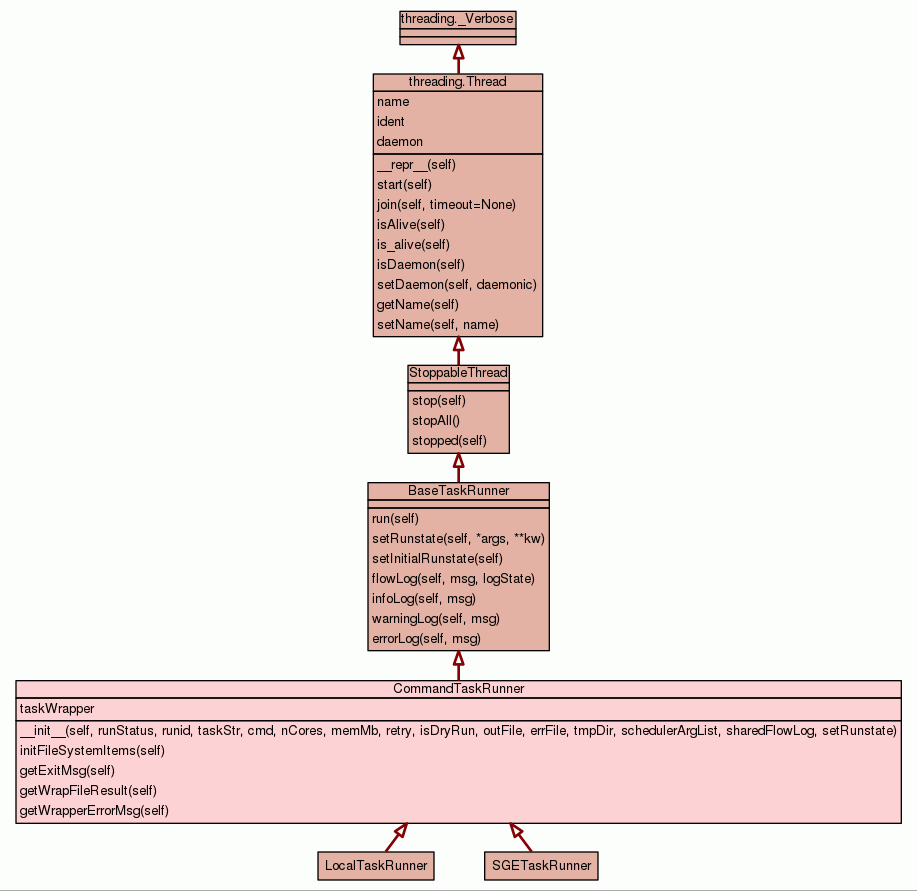
| Home | Trees | Indices | Help |
|---|
|
|

Parent to local and SGE TaskRunner specializations for command tasks
|
|||
|
|||
|
|||
|
|||
|
|||
|
|||
|
|||
|
Inherited from Inherited from Inherited from Inherited from Inherited from Inherited from |
|||
|
|||
|
Inherited from |
|||
|
|||
taskWrapper = |
|||
|
Inherited from |
|||
|
|||
|
Inherited from Inherited from Inherited from |
|||
|
|||
This constructor should always be called with keyword arguments. Arguments are: *group* should be None; reserved for future extension when a ThreadGroup class is implemented. *target* is the callable object to be invoked by the run() method. Defaults to None, meaning nothing is called. *name* is the thread name. By default, a unique name is constructed of the form "Thread-N" where N is a small decimal number. *args* is the argument tuple for the target invocation. Defaults to (). *kwargs* is a dictionary of keyword arguments for the target invocation. Defaults to {}. If a subclass overrides the constructor, it must make sure to invoke the base class constructor (Thread.__init__()) before doing anything else to the thread.
|
When the task is theoretically done, go and read the task wrapper to see the actual task exit code. This is required because: 1) On SGE or similar: We have no other way to get the exit code 2) On all systems, we can distinguish between a conventional task error and other problems, such as (a) linux OOM killer (b) exception in the task wrapper itself (c) filesystem failures. |
|
|||
taskWrapper
|
| Home | Trees | Indices | Help |
|---|
| Generated by Epydoc 3.0.1 on Fri May 19 16:44:20 2017 | http://epydoc.sourceforge.net |